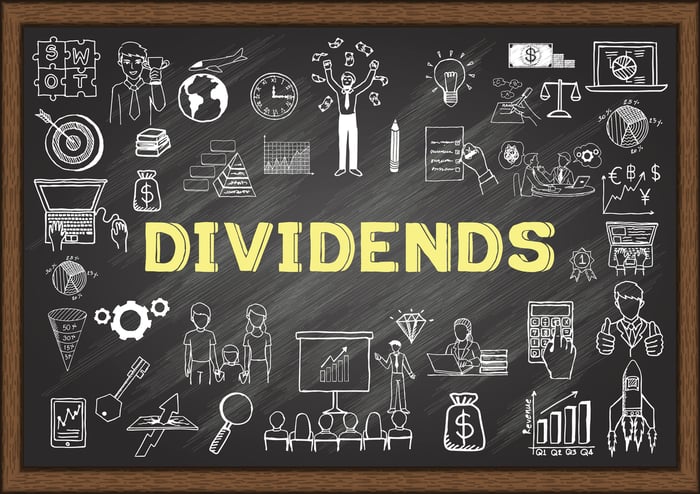Should You Buy the 3 Highest-Paying Dividend Stocks in the Nasdaq?
Key Points
After struggling for a decade, Kraft Heinz is planning to split into two companies.
Comcast's growth has stalled as the broadband market has matured.
PepsiCo has a plan to accelerate innovation and cut costs.
- 10 stocks we like better than PepsiCo ›
The Nasdaq 100 isn't known for dividend stocks. Investors typically turn to the tech-heavy index, which is made up of the 100 most valuable Nasdaq-listed stocks, for growth, and the Invesco QQQ Trust has a long track record of outperforming the S&P 500, a testament to the strength of the sector, especially during the artificial intelligence boom.
However, not every Nasdaq stock is a tech company, and there are a few decent dividend payers on the list. Let's take a look at the top three to see if any of them are worth buying today.
Where to invest $1,000 right now? Our analyst team just revealed what they believe are the 10 best stocks to buy right now. Continue »

Image source: Getty Images.
1. Kraft Heinz (6.3% dividend yield)
Kraft Heinz (NASDAQ: KHC), the company that was created by the merger of two food businesses over a decade ago, has been a disappointment in more ways than one. Years ago, the company took an impairment charge of $15 billion on the value of its brands, a reflection of the headwinds on processed food, and even Warren Buffett, who helped engineer the merger, has called it a mistake.
After a decade of underperformance, Kraft Heinz now plans to split the company into two. One will be focused on sauces, spreads, and meals, including brands like Heinz, Philadelphia cream cheese, and Kraft Mac & Cheese; the other will center around North American grocery staples like Oscar Mayer, Kraft Singles, and Lunchables.
Buffett has pooh-poohed that move as well, saying it doesn't address the underlying challenges the business is facing and would be too costly. He is correct that the separation does little to change the headwinds around processed foods or its portfolio of products. Management hasn't done as much as some of its peers to update its lineup.
Kraft Heinz's 6.3% dividend yield is attractive, and the stock is cheap, but the business looks like a value trap. It's cheap for a reason.
2. Comcast (4.5% dividend yield)
Like Kraft Heinz, Comcast (NASDAQ: CMCSA) is another company facing structural headwinds. The diversified entertainment conglomerate provides cable and broadband service, and it owns TV networks like NBC and the Sky Group in Europe, the Peacock streaming service, movie studios like Universal and DreamWorks, and several theme parks.
The challenges in the cable business are well known to investors, and the company has pivoted to broadband to replace that lost income. However, that business has matured, and Comcast is now losing broadband customers, though it's making up for it with growth in wireless customers.
Still, revenue rose just 2% in the second quarter, continuing a long streak of weak growth. The company remains solidly profitable, but with its current collection of businesses, it's unlikely to excite investors.
Comcast offers a good value at a price-to-earnings ratio of 7, but that hasn't been enough to generate growth for the stock. While its 4.5% yield is appealing, investors can find better options elsewhere.
3. PepsiCo (3.7% dividend yield)
PepsiCo (NASDAQ: PEP) has a long history of steady growth despite headwinds on soda and, more recently, snack foods.
Its global footprint, marketing muscle, and distribution network are competitive advantages, and it has used its size to make acquisitions, scaling up further. Earlier this year, it acquired the gut-healthy soda brand Poppi for $1.65 billion, and it bought the Mexican-American snack brand Siete Foods.
In its third quarter, organic revenue rose 1.3%, though adjusted earnings per share fell 2%, as the company has faced resistance to price hikes. It's also seeing volume declines across many of its business segments.
However, it plans to accelerate its innovation and optimize its cost structure to get back to product growth. PepsiCo has responded to previous challenges like this as soda consumption has been falling for 20 years, and it should be able to continue to churn out growth.
PepsiCo has a 3.7% dividend yield and a Dividend King title after raising its payout annually for the last 53 years. Of the three stocks here, PepsiCo seems like the best bet to balance growth, value, and income.
Should you invest $1,000 in PepsiCo right now?
Before you buy stock in PepsiCo, consider this:
The Motley Fool Stock Advisor analyst team just identified what they believe are the 10 best stocks for investors to buy now… and PepsiCo wasn’t one of them. The 10 stocks that made the cut could produce monster returns in the coming years.
Consider when Netflix made this list on December 17, 2004... if you invested $1,000 at the time of our recommendation, you’d have $594,569!* Or when Nvidia made this list on April 15, 2005... if you invested $1,000 at the time of our recommendation, you’d have $1,232,286!*
Now, it’s worth noting Stock Advisor’s total average return is 1,065% — a market-crushing outperformance compared to 196% for the S&P 500. Don’t miss out on the latest top 10 list, available when you join Stock Advisor.
See the 10 stocks »
*Stock Advisor returns as of October 27, 2025
Jeremy Bowman has no position in any of the stocks mentioned. The Motley Fool recommends Comcast and Kraft Heinz. The Motley Fool has a disclosure policy.



